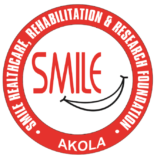Dyslexia is a specific learning disability that is neurobiological in origin. It is characterized by difficulties with accurate and/or fluent word recognition and by poor reading and spelling abilities. These difficulties typically result from a deficit in the phonological component of language. Dyslexia is not a vision problem, and it is more than just reversing letters. It can affect reading, spelling, writing, and even math. It is a lifelong condition, but with the right support, individuals with dyslexia can become highly successful students and adults
It affects about 20% of the population and is often associated with differences in brain connectivity, which provides a neurological basis for the struggles experienced by individuals with dyslexia
Some common signs of dyslexia in children include:
1. Preschool: Late talking, difficulty pronouncing words, difficulty learning nursery rhymes, and a family history of reading and/or spelling difficulties
2 Kindergarten & First Grade: Reading errors that show no connection to the sounds of the letters on the page, difficulty understanding that words come apart, and complaining about how hard reading is
3. Grades 3-5: Confusing or skipping small words like “for” and “of” when reading aloud, having trouble sounding out new words, and having trouble remembering how words are spelled
4. School Age: Reading well below the expected level for age, problems processing and understanding what is heard, difficulty finding the right word or forming answers to questions, and problems remembering the sequence of things
5. General Signs: Slow spoken and/or written language, poor concentration, difficulty following instructions, forgetting words, and poor standard of written work compared to oral ability
It’s important to note that not all children with dyslexia will display the same weaknesses and abilities, and dyslexia can look different as kids get older. Early assessment and intervention can result in the best outcome for children with dyslexia.
Some common misconceptions about dyslexia include:
1. Reversed Letters: Dyslexia is not just about seeing letters flipped around. It is primarily a language-based problem, not a vision problem
2. Diagnosis by Medical Professionals: Dyslexia cannot be diagnosed by a medical professional alone. It requires a comprehensive evaluation by a team of experts
3. Outgrown Condition: Dyslexia is not something that can be outgrown. It is a lifelong issue that can be effectively managed with the right support and interventions
4. Vision Problem: While individuals with dyslexia may have visual processing challenges, dyslexia itself is not a vision problem
5. Intelligence and Dyslexia: People with dyslexia are not lazy or lacking in intelligence. Dyslexia is a specific brain weakness, not related to intelligence
It’s important to debunk these misconceptions to ensure that individuals with dyslexia receive the support and understanding they need.
